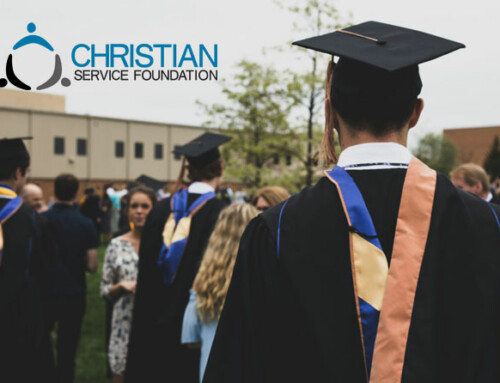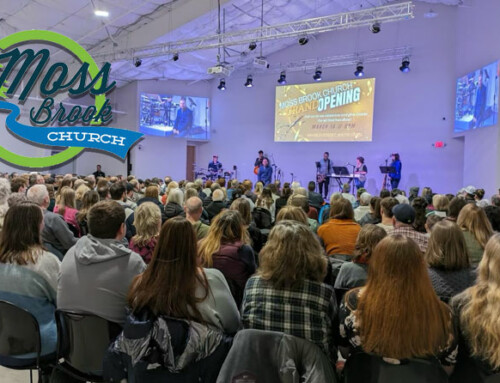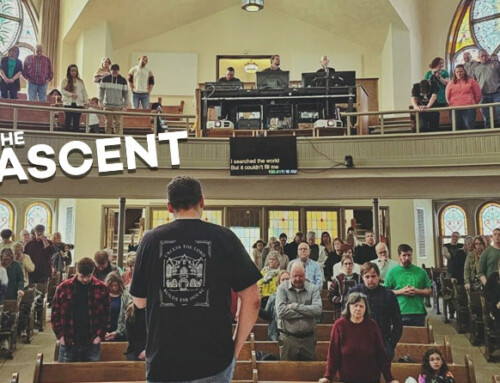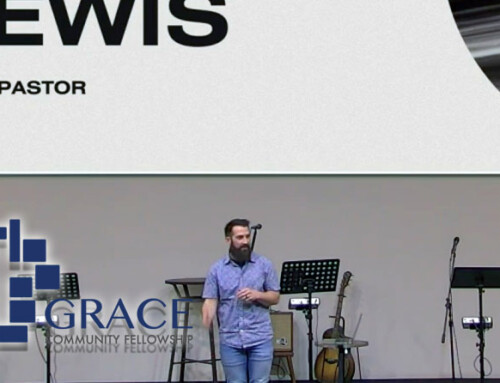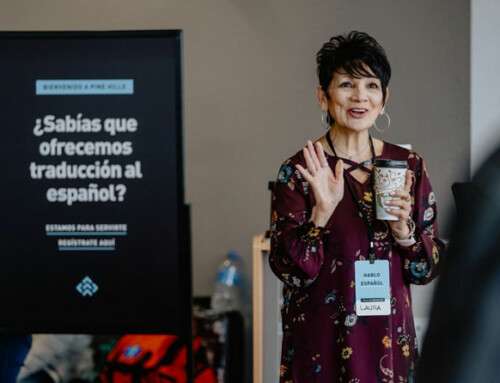Developing the Next Generation of Leaders
Residency programs equip men, women to do the work of ministry within FEC.
KRISTI REIMER, FECONNECTIONS EDITOR
It’s no secret that the mission of the Fellowship of Evangelical Churches is (and has pretty much always been) to develop reproducing congregations—in other words, to plant churches that plant churches. But this process can’t happen without people willing to step out in leadership and lead the planting process.
These individuals face a host of challenges that they may or may not be prepared to face and overcome, and the risk of failure is high—common church planting statistics indicate that as many as half of all church plants fail within the first year.
In light of this, FEC is making a point to train young people who feel called into ministry through intensive residency programs. These leadership residencies take place within a local church network and under the direction of an experienced church planter. Two such programs have been launched so far—one in Newton, Kansas, and one in Wauseon, Ohio—and more are in the works. The goal? To have a pipeline of trained pastors ready to take over existing churches and plant new churches.
MULTIPLICATION VS. ADDITION
Jay Nickless, Director of the Church Multiplication Center in Newton, Kansas (see p. 7), says the Church Multiplication Residency program he heads up grew out of necessity. “You can recruit leaders from outside, but the answer really is to develop leaders from within,” he says. “It’s the difference between addition and multiplication,” he says.
Grace Community Church in Newton has launched two churches in the past two years, and during that process Jay himself studied the target communities, put together the launch teams and directed all planting activities. “It was kind of a ‘duh’ moment when we realized there was a better way to do it,” he says. “As long as I’m doing it, it’s addition. But if we can train others in the process, now we’re talking about multiplication.”
So now the leaders of the two upcoming church plants are participating in the Church Multiplication Residency, a highly focused program that teaches leaders how to launch a church so that they can do it themselves—and teach others. The residency consists of five phases:
1. Exploration. Phase one is investigational in nature. It consists of exploring the proposed target community to determine its needs and receptiveness—“like the spies in the Promised Land,” says Jay—and also determining the leadership competence of the participants.
2. Preparation. This phase focuses on constructing the “DNA” of the new church—its vision, values, mission and strategy.
3. Pre-launch. In this phase, residents develop ministry teams to help launch the church. “I can see right away in this phase who’s going to do well and who is not,” Jay says. “Who are the theory lovers, who needs to be held by the hand, and who has the key characteristic of intrinsic motivation.” To this end, the program gives participants assignments but does not prescribe a step-by-step approach. “Freedom is the best and worst thing about church planting,” Jay says. “If someone can’t get through this phase, church planting is probably not for them.”
4. Launch. During the launch phase, the new church focuses on evangelism efforts and also puts together a “life-giving weekend service” to officially launch the church in the community. “In Kansas, because of the culture and context, Sunday morning is still one of the best times to bring people to Christ,” Jay says.
5. Post-launch. This phase—which can last for years, Jay says—consists of the new church constructing and implementing the necessary ministry systems that help bring people to Christ, build them up in the faith, and eventually send them out to change the world. While the Church Multiplication Residency program will help feed future church planting efforts around Newton, participants can and will go into FEC ministries elsewhere as well. “I would like this program to become a fishing pool for FEC,” Jay says. “There are other programs out there who can teach people to lead a church, but there’s not a lot on how to launch one. We can teach them how to launch a church and how to launch it well.”
HOLISTIC MENTORING
Matt Boyers, Senior Pastor of Crossroads Evangelical Church in Wauseon, Ohio, directs the church’s Leadership Development Residency, which focuses on developing church plant leaders—especially those who will minister in rural areas. “Twenty years of my ministry have been spent in rural, small-town contexts,” Matt says. “One of the areas where we’re looking to plant next is a small town of 1,900 people, who are 85 percent unchurched. We see that a lot in communities, and that’s where my heart is.”
The strategy for Crossroads’ Leadership Development Residency relies heavily on “whole-person” mentoring in six areas: preaching, leadership, discipleship, theology, spiritual transformation, and marriage. Matt’s wife, Lanita, hosts regular meals for the resident couples and helps disciple the resident’s wife.
Why this holistic approach? “A deficiency in our educational institutions is a failure to equip ministry couples in
marriages, spiritual transformation, and how theology is relevant to all of life,” Matt replies. “We’ve been in ministry long enough to see several pastors’ marriages blow apart through infidelity, and it wreaks havoc on churches. We want to help young couples intentionally invest in their marriages and their own spiritual life for the long term.” Like the Church Multiplication Residency in Newton, the Leadership Development Residency in Wauseon consists of several phases. Residents hold various titles as they move through the process:
1. Intern. This phase focuses on the resident’s personal and ministry development, with much of the work going toward spiritual formation, mentorship and instruction. “It functions as an extended interview to assess the participant’s
fit,” Matt says, “and after a positive assessment, the intern is invited to participate in phase two of the program.”
2. Resident pastor. In this phase, the resident is fully involved in the pastoral work at Crossroads campuses (in addition to Wauseon, the church holds services in Napoleon, Ohio) to gain experience in church leadership, servanthood and discipleship while receiving training in church planting.
3. Planting pastor. During this period the resident prepares to plant and launch a church in a target community. He identifies and recruits a core team, relocates to the community, starts Bible studies there, and plans services. At the end of this phase, the new church is officially launched. As in Newton, residents can stay within the Crossroads network or move on to other FEC ministries. “We are hoping that out of three residents, at least one will plant in our area,” Matt says. “We’d like to be able to plant a church within our network, within FEC, or even around the world. And Crossroads has made a big commitment of resources to developing leaders who will plant churches.”
One challenge the program has faced so far is that the process doesn’t necessarily follow a carefully laid out calendar. “Things are not going to happen in neat and tidy phases six months apart,” Matt says. “We’re already involved in dialogue with a plant we didn’t think would happen for a year or two. This is a challenge to our budget, but we want to be prayerful and in step with how the Holy Spirit orchestrates connections.”
But along with challenges have come affirmations of God’s hand at work. One is the congregation’s willingness to give their senior pastor the freedom to spend half his time directing the residency program.
Also, the program’s first resident “came to us from a large church that was very program-driven so the resident longed for more incarnational ministry,” Matt says. “Now he’s meeting with people in discipleship and leading a men’s group. To see his growth in six weeks and to see him realize the necessity of prayer and be compelled by the Holy Spirit in relationships has been a great affirmation.”
FEC’S COMMITMENT
In addition to these two residency programs and others in development, FEC has committed to allowing every church to have a summer internship program. These programs will be funded by the Jerry Boyers Scholarship (see p. 6) and also by funds allocated within the FEC budget. With the efforts of local churches and the support of FEC as a whole, the denomination is well on its way to realizing its strategic plan to train, equip and invest in the next generation.


